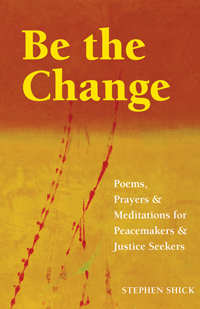

This tongue-in-cheek advice is perfect to include in a lighthearted birthday card.

Here are some fun poems for you to enjoy.

He is the author of, among others, The Secret Library: A Book-Lovers’ Journey Through Curiosities of History and The Great War, The Waste Land and the Modernist Long Poem.Aging, like anything else, is often the target of wit. The author of this article, Dr Oliver Tearle, is a literary critic and lecturer in English at Loughborough University. The image of the canyon here (a variation on staring into the abyss?) is particularly powerful.

The poem wonderfully captures the uncertainties we feel when getting ready to embark upon adult life. We’ll conclude this pick of great coming-of-age poems with one titled, aptly enough, ‘Adolescence’, by the American poet Adrienne Su (born 1967). It’s a quintessentially Armitigian piece, fusing wit with arrestingly original imagery (the girls being ‘long and cool like cocktails’ in the summer heat) and with the distinctive colloquial voice Armitage uses so well. Probably the best poem ever written about sitting the General Studies A-Level exam, ‘You May Turn Over and Begin …’ is also about sexual desire and adolescence. Simon Armitage, ‘ You May Turn Over and Begin’. Duffy paints a fond picture of her time at primary school and on the brink of adolescence, powerfully suggested by the poem’s final image of the sky breaking into a thunderstorm.ĩ. There aren’t many modern or contemporary poems which recall schooldays with affection, but ‘In Mrs Tilscher’s Class’ does just that. Carol Ann Duffy, ‘ In Mrs Tilscher’s Class’. We love the final image of the streetlamps pinging into miniature suns, hinting at the new world that has opened up to the girls.Īs the title implies, this is the first in a sequence of adolescence poems Dove wrote – the others can be found online too if you enjoy the first …Ĩ. 1952), a contemporary African-American poet, adopts an almost imagistic precision here in this short poem about a particular memory of adolescence: when she and other teenage girls first heard from their friend what it was like to kiss a boy. We have offered some more words of commentary on this brilliant poem here. This classic Seamus Heaney poem, published in his first published volume, the 1966 book Death of a Naturalist, is simultaneously about picking blackberries in August and, on another level, about a loss of youthful innocence and a growing awareness of disappointment as we grow up. However, this sulky, sweary teenager-voice which Larkin sometimes adopts at the outset of some of his best poems then gives way to a more thoughtful, sympathetic voice, which understands that each generation has inherited (in both a genetic and cultural sense) certain things from the previous generation, not all of them favourable… One of Larkin’s best-known poems, with an opening line containing one of the most controversial swear words in the English language (you have been warned!), this poem is not so much about adolescence as a poem which expresses a common adolescent view: that one’s parents are to blame for everything. But instead of asking myself, why aren’t they in school, I asked myself, I wonder how they feel about themselves.’ And I saw therein a whole bunch of boys – I say here in this poem seven – and they were shooting pool. As Brooks herself later explained: ‘I wrote it because I was passing by a pool hall in my community one afternoon in school time.


 0 kommentar(er)
0 kommentar(er)
